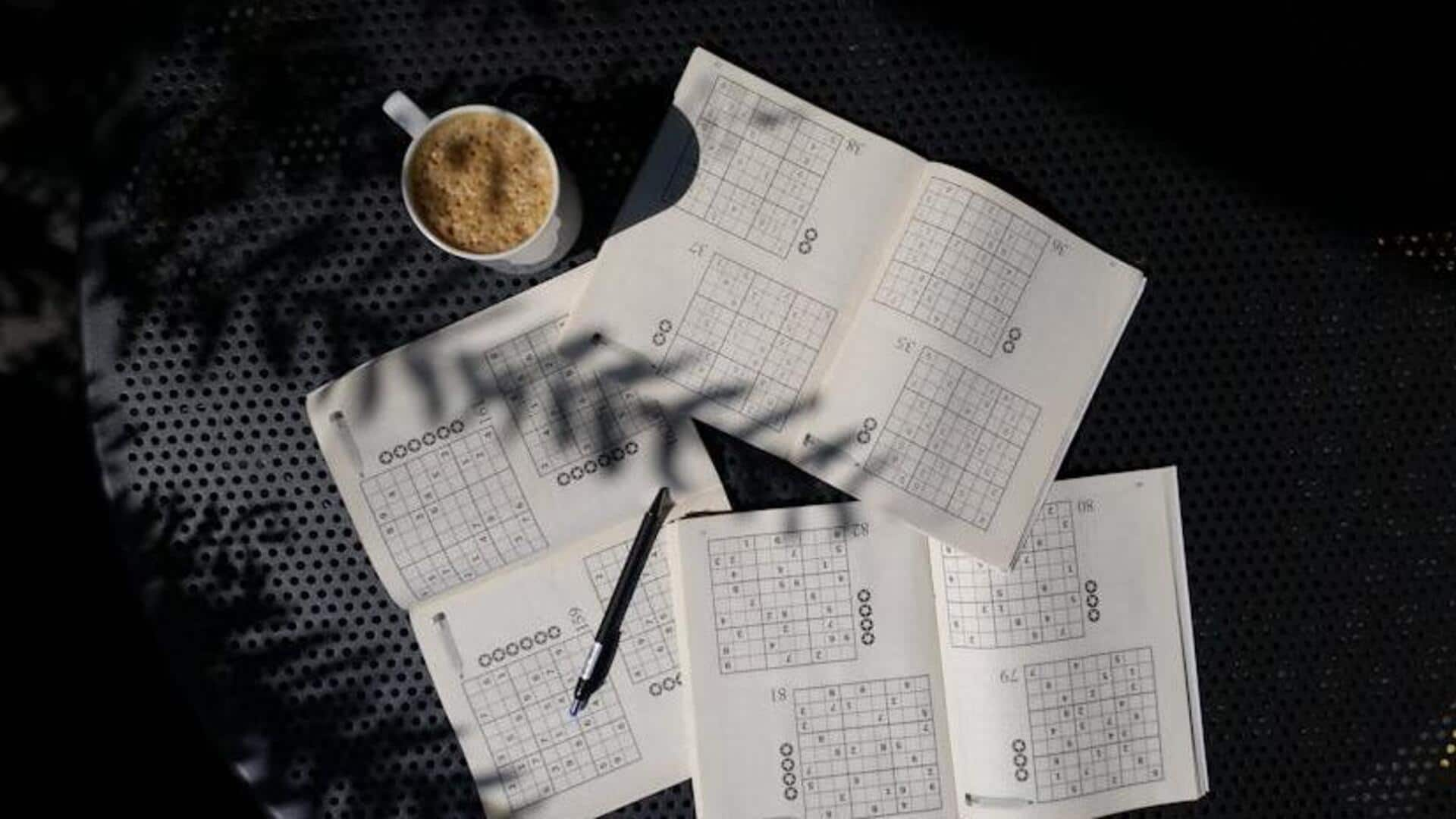
Enhance concentration with Sudoku
What's the story
Sudoku, the beloved puzzle game with a reputation for being easy to learn but hard to master, has long been acknowledged as a powerful tool for cognitive enhancement. By regularly immersing yourself in Sudoku puzzles, you can experience a profound improvement in your ability to concentrate and maintain focus. Read on to discover five actionable strategies for leveraging the power of Sudoku to boost your attention span and mental clarity.
Beginner level
Start with simple puzzles
It's important for beginners to start with easy puzzles. By starting simple, you can learn the basic techniques without getting overwhelmed. Your focus will improve as you solve more puzzles because you will learn to concentrate on one number or area at a time. This natural progression from simple to more complex puzzles will build your focus gradually.
Timed challenges
Set time limits
Turns out, setting a timer while you're working on Sudoku is a game-changer for your focus. When your brain knows there's a clock ticking, it kicks into high gear, trying to outrun the seconds slipping away. This not only helps you get faster at solving problems, but it also trains your brain to sustain intense focus for shorter bursts.
Break time
Take regular breaks
The key to improving concentration isn't powering through Sudoku puzzles without stopping. Taking short breaks between puzzles helps your mind rest and reset, making it easier to focus when you return to the task. A five-minute break every 20 minutes is a good rule of thumb for keeping your mind sharp and focused.
Level up
Challenge yourself gradually
As you master easier puzzles, it's good to progressively tackle harder Sudoku puzzles. Attempting harder ones pushes your brain to come up with new strategies and thought patterns. In turn, this improves focus and cognitive flexibility. However, it is important to make sure that the jump isn't too big, to prevent getting discouraged or overwhelmed.
Puzzle Mix
Incorporate variety
Solving a variety of Sudoku puzzles can further improve concentration by preventing boredom and ensuring the brain remains actively engaged. Variations like diagonal Sudoku or larger grids (think 16x16!) add new rules and challenges, demanding more focus and strategic planning. This diversity keeps the activity fun and fresh, while also making sure different areas of your brain get a regular workout.